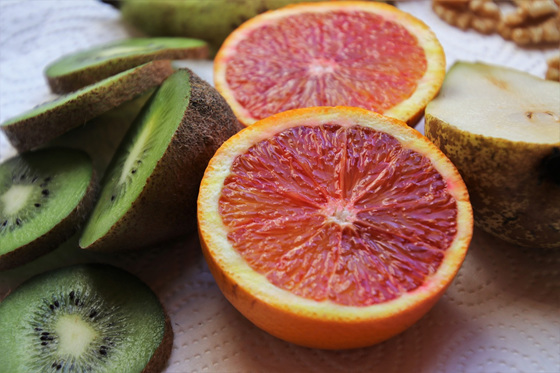Winter Wellness Tips
It’s hard to believe we are now halfway through the year, and winter has moved in! We all know during these winter months we are more prone to catching coughs and colds and other airborne illnesses.
The good news is that there are natural ways to help increase your immunity and keep well to beat winter ills and chills. The key immune enhancing nutrients are vitamin D, zinc and vitamin C.
Vitamin D plays a powerful immunoregulatory role, as well as mood enhancing and reducing the risk of respiratory infections in children.
Most vitamin D is formed as a result of sunlight exposure on our skin. Unfortunately, vitamin D is present in small quantities in only a small amount of foods (oily fish, liver, eggs, and some fortified dairy products). It is widely accepted that it is difficult to meet vitamin D requirements through diet alone.
To improve your vitamin D status it is recommended that you expose a large area of your skin to the sun for a short period of time, about 5-10 minutes. This is better than exposing a smaller area for longer periods, and putting yourself at risk of getting sun burnt. During summer months try to do this before 11am or after 4pm. In winter, longer periods are required, around 30 minutes per day. Living in the South Island means we need more exposure because of the lower UV levels.
If you think you may be low in vitamin D it may be an idea to have your blood levels tested. It is best to talk to a qualified health practitioner before supplementing with vitamin D as this is one of those vitamins where either too little or too much can be dangerous.

Zinc is an immensely important immune boosting mineral. Research suggests that zinc can reduce the duration and severity of a cold, but only if it’s started early on. Zinc also has the additional benefit of assisting with mood, healthy skin and wound healing, as well as improving fertility and hormone balance in men and women.
There are many great food sources of zinc such as seafood (especially oysters), lean red meat, chicken, wholegrain cereals, beans, lentils, pumpkin seeds, and dairy. Despite this, zinc deficiencies amongst Kiwis are common because the mineral content is low in our soils. To top up your levels, zinc is a great mineral to supplement with during winter. Excess doses can cause gastric upset and nausea so it is important to talk to your health provider to find the correct dose for you.
Vitamin C (also known as ascorbic acid) works as an antioxidant to protect our bodies from damage. It also has other health promoting roles in the body including healthy skin and gums, wound healing, iron absorption (particularly from vegetarian sources), and heart health.
Vitamin C is a water-soluble nutrient. This means it is carried to the body's tissues but it cannot be stored for a long time in the body, so small regular daily doses are important. The best winter food sources of vitamin C are parsley, kiwifruit, citrus fruits (mandarins, oranges, grapefruit, lemon), leafy greens, and red capsicum.
While vitamin C toxicity is rare, taking supplements containing more than 2,000 mg per day can lead to stomach upsets and diarrohea. If supplementing, it is useful to take a loading dose of vitamin C, e.g. a vitamin C powder in a drink bottle (ideally glass) sipped throughout the day over a 2-3 day period is a good way to top up your vitamin C levels without upsetting your tummy.

Alongside the immune boosting nutrients discussed above, there are plenty of other ways to protect your body against winter ills and chills by leading a holistic, healthy lifestyle.
Top Tips for a Healthy Lifestyle:
-
A nutrient dense, toxin free diet: Choose to eat healthy foods. Eat a diet rich in plants and wholefoods, and low in processed foods and sugar. Eat with the season and embrace the produce of the season. Winter produce options include green leafy vege- kale, silverbeet, pumpkin, leek, brassica (broccoli, broccoflower, cauliflower, cabbage). Fruits which also happen to be rich in vitamin C such as persimmons, mandarins, oranges, kiwifruit, limes).
-
Herbs: Include plenty of immune boosting herbs and spices in your diet such as ginger, turmeric, garlic, rosemary, and thyme
-
Sleep: Get adequate, good quality sleep. Just a few nights of not sleeping well can elevate inflammatory markers and reduce the protective capability of your immune system.
-
Exercise regularly: It’s often difficult to get motivated when it’s cold and dark, but regular exercise is a great way to increase your serotonin levels. It also leads to better sleep and keeps you warm. Remember, as we mentioned earlier, getting out into the sunshine, even in winter helps with essential vitamin D production.
-
Fermented foods and/or probiotics: 70-80% of our immune system is in our gut. If you have poor gut flora, you’ll be more susceptible to viral and bacterial infections (and colds and flus). Try and include sauerkraut, kombucha, kefir, bone broths.
-
Wash your hands: This is the number one way to prevent the spread of germs and something that’s often forgotten. Experts recommend washing your hands every few hours, especially after using the toilet, before meals and after using someone else's phone or keyboard.
-
Other factors include managing stress, drinking alcohol in moderation, avoiding smoking, and avoiding foods that you may be allergic or intolerant too.

